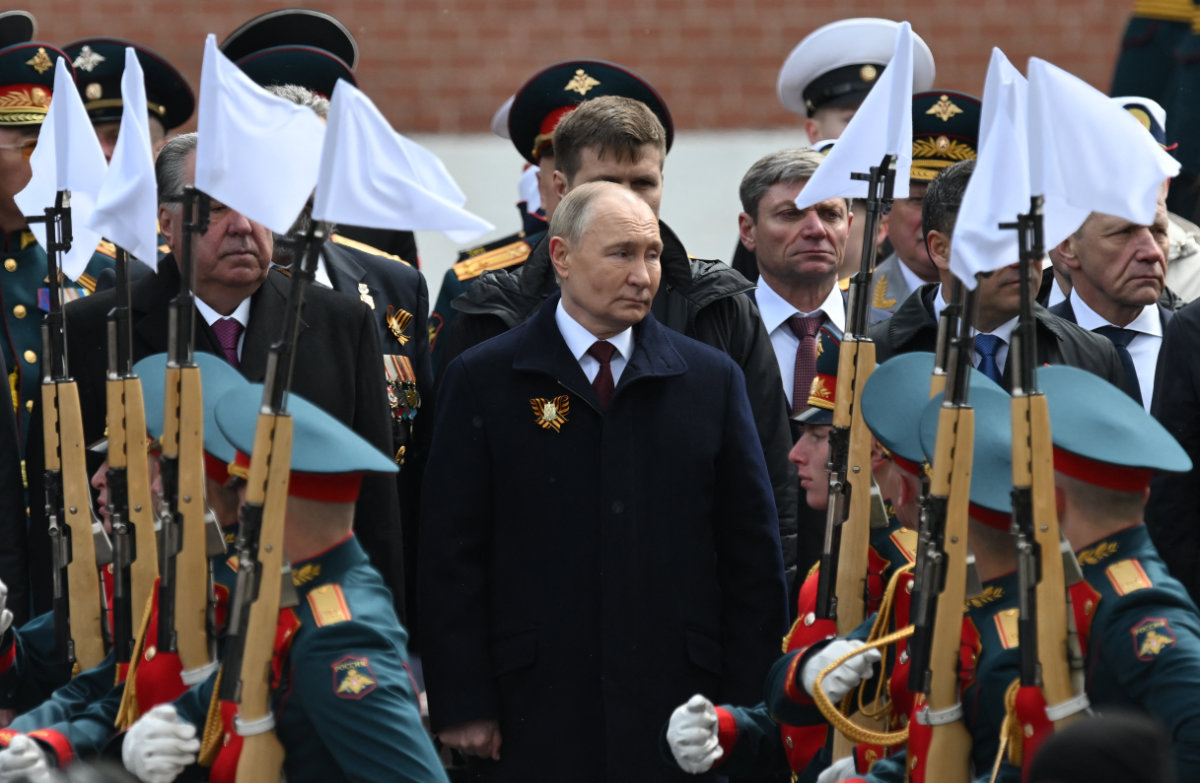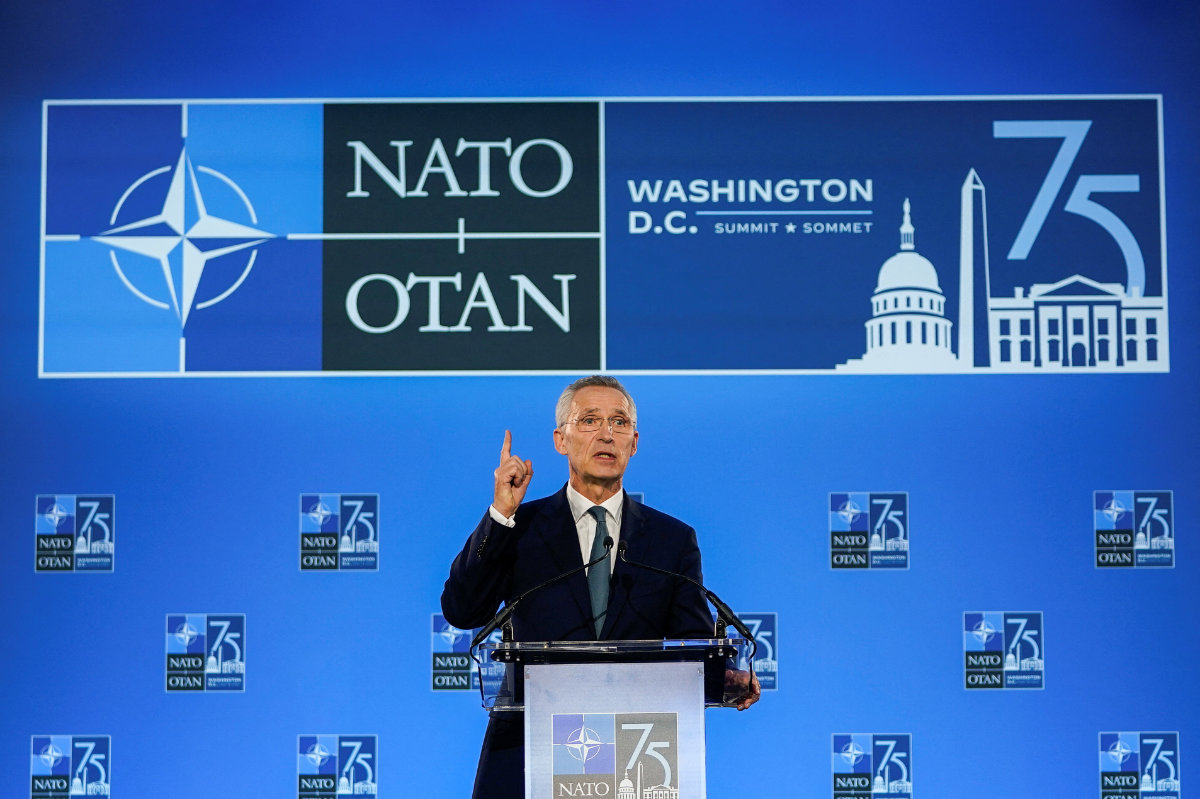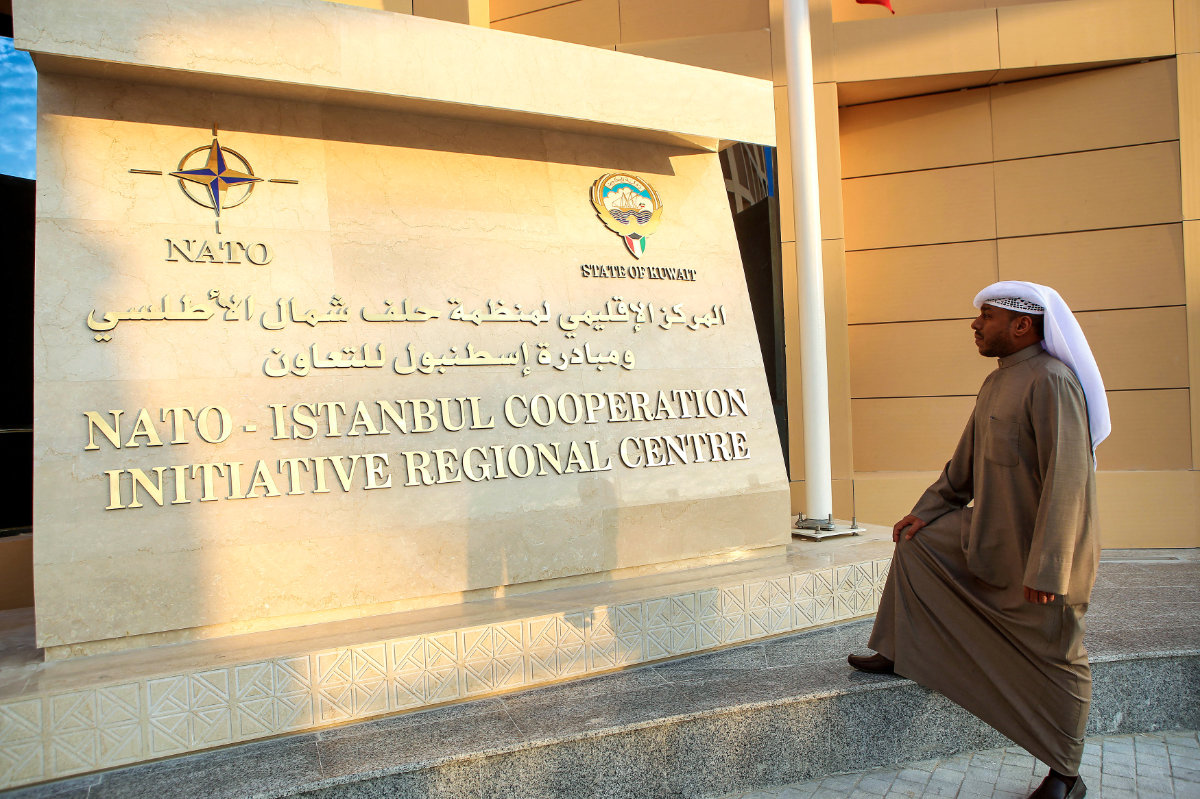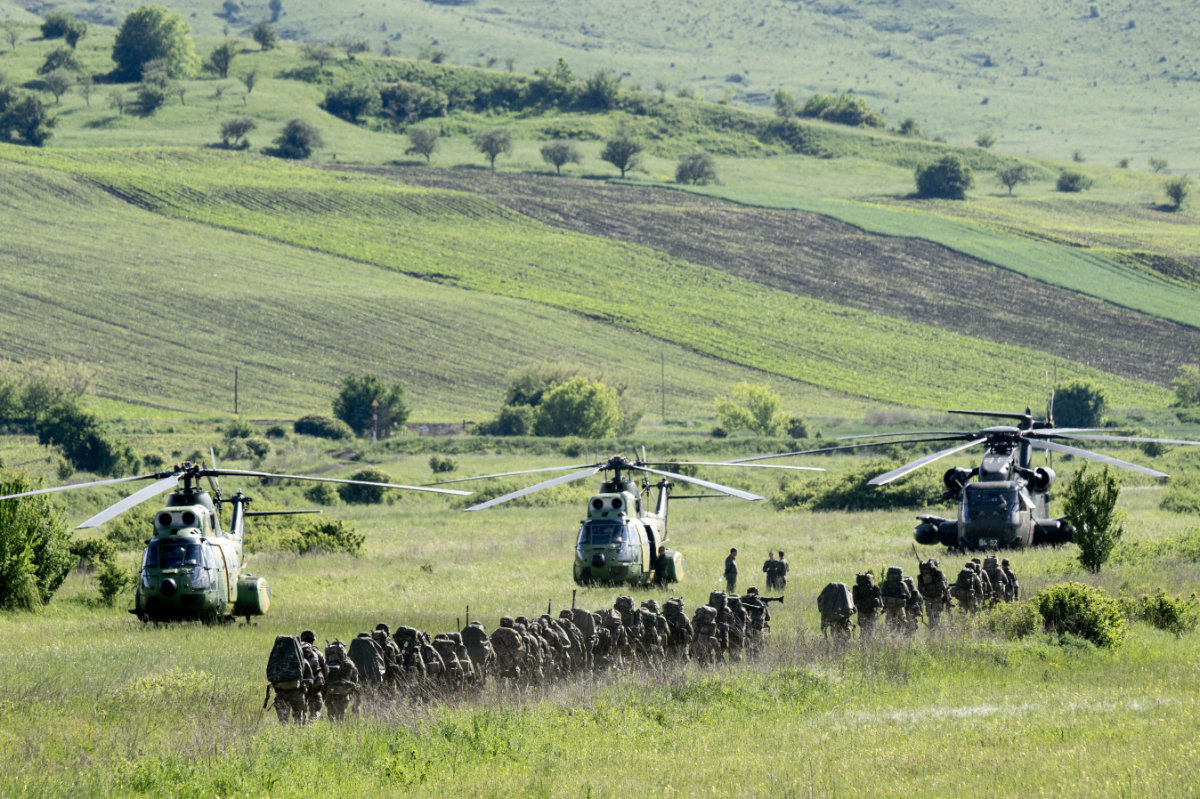WASHINGTON: In an important milestone of transatlantic security, President Biden Joe Biden is hosting 38 heads of delegation in the US capital this week for a historic summit to mark the 75th anniversary of NATO’s founding.
Converging on the city are the leaders of 32 NATO members, with Sweden joining for the first time, as well as partners including Ukraine, Japan, New Zealand, the Republic of Korea, Australia and the EU. Large numbers of senior officials, foreign ministers, defense ministers and cabinet officials from NATO partners around the world will also attend.
The summit will commemorate the world’s most successful alliance, established in 1949 during the early days of the Cold War, and whose enduring existence has defied skeptics for decades.

NATO’s significance was renewed and underscored two-and-a-half years ago by Russia’s invasion of Ukraine, which analysts say has profoundly challenged the so-called international rules-based order, posing one of the most significant threats to transatlantic security in decades.
But beyond its officials’ assurances, NATO faces uncertainty about its future. External threats contribute a part, yet the primary concern stems from internal turmoil that could follow if NATO skeptics, such as Donald Trump and Marine Le Pen, leader of France’s far-right National Rally, assume power in 2024 and 2027, respectively.
Trump personifies the tension between European allies and the US that was there from the beginning. As one observer put it: Americans seemed to be from Mars, Europeans from Venus.

Former US President and Republican presidential candidate Donald Trump speaks during a rally in Doral, Florida, on July 9, 2024. (AFP)
French President Emmanuel Macron recently has said that the alliance “only works if the guarantor of last resort functions as such. I’d argue that we should reassess the reality of what NATO is in the light of the commitment of the United States.” The US, in his view, shows signs of “turning its back on us,” as it demonstrated with its unexpected troop withdrawal in October 2019 from northeastern Syria, abandoning its Kurdish allies.
The official language of the Biden administration and NATO officials project an image of an alliance that is — in the words of Ambassador Michael Carpenter, special assistant to the president — “larger, stronger, better resourced, and more united than ever before.”
While US news media continue to focus on Biden’s fitness and ability to handle an event like the 75th anniversary of NATO’s founding, both US administration and NATO officials have nimbly sidestepped questions regarding the president’s health.
The “most urgent task” at the summit, according to NATO’s chief, will be support to Ukraine. Allies will unveil substantial new measures to assist the war-ravaged country.

These include stepping up security assistance and training, with a large command center in Germany; a financial pledge of $43 billion; further air defense systems and ammunition; and showcasing backing for Kyiv as it progresses toward NATO membership.
“This will not make NATO a party to the conflict,” said Jens Stoltenberg, NATO secretary-general. “But it will enhance Ukraine’s self-defense.”
He added: “Ukraine must prevail … they need our sustained support.”
Carpenter, the senior US diplomat, said: “Together, the Washington summit will send a strong signal to (Russian President Vladimir) Putin that if he thinks he can outlast the coalition of countries supporting Ukraine, he is dead wrong.”

Russia's President Vladimir Putin and foreign leaders lay flowers at the Tomb of the Unknown Soldier by the Kremlin wall after the Victory Day military parade in central Moscow on May 9, 2024. (Sputnik/Pool/AFP)
NATO will use the summit to highlight significant investments in its own defense and deterrence capabilities.
In 2020, only nine NATO members spent at least 2 percent of their gross domestic product on defense, a benchmark first set almost a decade ago. Today, a record 23 NATO members are at, or above, the minimum level of 2 percent of GDP for defense spending.
“Since Russia’s aggression against Ukraine began in 2014, NATO has fundamentally transformed,” said Stoltenberg.

“Defense spending across European allies and Canada is up 18 percent this year alone, the biggest increase in decades. Allies are taking burden-sharing seriously.
“Today, we have 500,000 troops on high readiness; combat-ready battlegroups in the eastern part of the alliance for the first time; more high-end capabilities, including fifth-generation aircraft; and two highly committed new members, Finland and Sweden.”
What Ukraine has also demonstrated, according to Stoltenberg, is the global dimension of the alliance’s security, with “Iran and North Korea (fueling) Russia’s war with drones and shells,” and “China propping up Russia’s war economy.”He added: “The closer that authoritarian actors align, the more important it is that we work closely with our friends in the Indo-Pacific.”
Deepening NATO’s global partnerships is the third goal of the summit. For that purpose, Stoltenberg has invited leaders of Australia, Japan, New Zealand and South Korea to Washington.
“Standing up to authoritarian actors with our partners helps to uphold the rules-based international order,” he said.

NATO Secretary General Jens Stoltenberg holds a press conference during NATO's 75th anniversary summit in Washington, D.C., on July 10, 2024. (REUTERS)
Partnership with Middle East and North Africa countries will also be addressed in meetings and bilateral talks, including the NATO Istanbul Cooperation Initiative, which celebrates its 20th anniversary this year, and includes UAE, Bahrain, Kuwait and Qatar; and the Mediterranean Dialogue, which celebrates its 30th anniversary this year as a partnership forum for promoting security and stability in the region, with participating countries including Algeria, Egypt, Israel, Jordan, Mauritania, Morocco and Tunisia.
Carpenter said: “When it comes to the Middle East, I’m sure there’s going to be a range of discussions, including bilateral meetings on the margins of the summit, where this will come up.
“The Middle East is not Euro-Atlantic territory, but obviously it impinges on the security of the Euro-Atlantic region. So, what’s happening now in the Middle East is, of course, of concern to all NATO leaders.”

The NATO-Istanbul Cooperation Initiative Regional Center in Kuwait City, which was inaugurated on January 23,2017. (AFP)
Luke Coffey, senior fellow at the Hudson Institute, lamented the fact that neither the Istanbul Cooperation Initiative nor the Mediterranean Dialogue have been used to their full potential.
“I’m a bit disappointed that NATO hasn’t made a bigger deal out of the 20th anniversary of the Istanbul Cooperation Initiative (and) the 30th anniversary of the Mediterranean dialogue, which covers more of NATO’s relations with the Levant and North Africa,” he told Arab News.
“These are important milestones, and both of these platforms have been useful in the past in allowing NATO to engage with the broader community in the region,” he added.
“It would be very good to hold a NATO meeting at the heads of state, heads of government level, for the Istanbul Cooperation Initiative. I know it would be very difficult to do. Someone should have thought of this earlier. But let’s make a big deal out of this anniversary.

Spanish, German and Dutch soldiers take part in a NATO military exercise in Romania on May 14, 2024. (AFP)
“NATO should make it very clear to the countries, especially in the Gulf, that if you’re not part of the Istanbul Cooperation Initiative, the door is open. Nobody, of course, is talking about membership for NATO or anything like this. This is ridiculous, but adding new members to the Istanbul Cooperation Initiative would be a positive thing, I think, for the alliance.”
The NATO-MENA security overlap, according to Coffey, includes concerns such as counterterrorism, and Iran’s missile and drone proliferation. He believes NATO should collaborate more deeply with MENA nations, starting with missile and air defense.
“From a European point of view, often many of the challenges that are in the Middle East find their way into Europe over time. So, it benefits Europe, and especially NATO, to work with countries in the Middle East to help them address their own security concerns.”
INNUMBERS
INNUMBERS 32 Members of NATO military alliance.
7 Canada’s rank in amount of money spent on defense.
3.5% Share of US GDP spent on military.
Coffey said Stoltenberg’s visit to Saudi Arabia in December last year was a step in the right direction “that would maybe get (the Kingdom) inside the Istanbul Cooperation Initiative.
“Saudi Arabia is the dominant power on the Arabian Peninsula, and it shares many of the same security challenges that we have in NATO, such as, the proliferation of ballistic missiles and drones and the Iranian threat,” he said.
“So, it makes sense that NATO cooperates with Saudi Arabia whenever possible, and we have a platform in NATO to engage with countries like Saudi Arabia. So, let’s get Saudi Arabia inside of the Istanbul Cooperation Initiative.
“If they want to. NATO also has to be careful to make sure that we go at the speed and the comfort level of engagement of the Gulf states. We shouldn’t try forcing anything onto the region, but we should always make clear that NATO is open for deeper cooperation if there’s a willingness.”





























